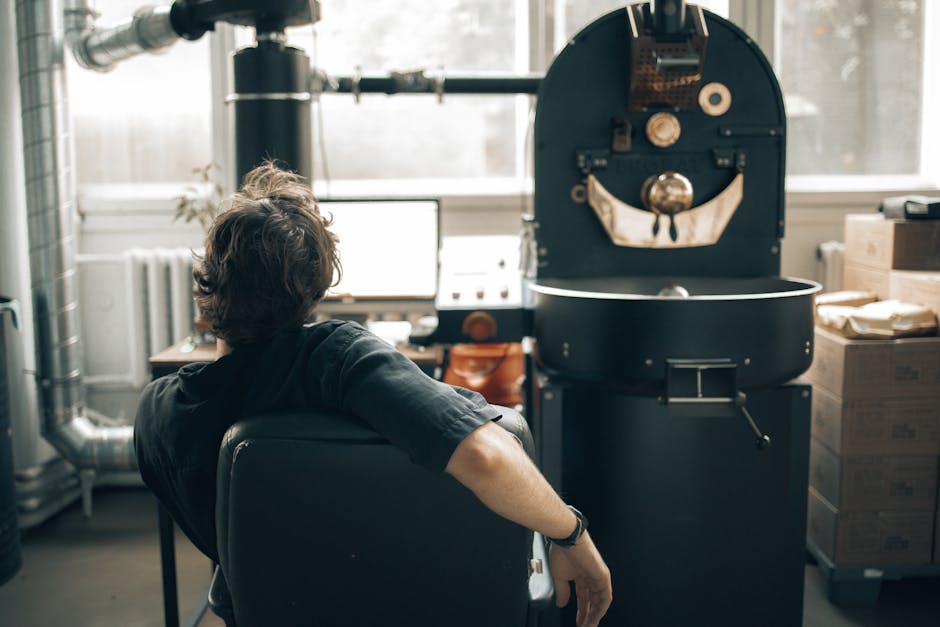Introduction to Direct Trade Coffee
Direct trade coffee is a model where coffee roasters buy directly from coffee farmers, cutting out the middlemen. This approach ensures fair payment to farmers for their quality beans, promotes sustainable farming practices, and fosters long-term relationships. When you choose direct trade coffee, you are not just getting a delicious brew but also supporting ethical and transparent sourcing practices that benefit both farmers and consumers.
What is Direct Trade and How Does It Differ from Other Coffee Sourcing Methods?
Direct Trade is a coffee sourcing method where coffee roasters buy directly from coffee farmers, cutting out middlemen. This allows for higher prices for farmers and better quality control. In contrast, other coffee sourcing methods involve various middlemen between the farmer and the roaster, which can affect quality and farmer compensation. Direct Trade is valued for promoting transparency, sustainability, and fair compensation in the coffee supply chain.
The Impact of Direct Trade on Coffee Farmers and Communities
Direct trade benefits coffee farmers by providing them with higher prices for their beans compared to traditional trading models. This allows farmers to invest more in sustainable farming practices, improve their living conditions, and support their local communities. By establishing direct relationships with roasters, farmers have more control over their product's quality and receive fair compensation for their hard work. This fosters a more ethical and mutually beneficial partnership between coffee farmers and consumers.
Quality and Transparency in Direct Trade Coffee
Direct trade coffee focuses on quality and transparency in the coffee supply chain. This means that coffee roasters work directly with coffee farmers, eliminating the need for middlemen. By fostering direct relationships, coffee roasters can ensure the quality of the coffee beans and the fairness of the prices paid to farmers. This transparency allows consumers to trace the journey of their coffee beans from the farm to their cup, giving them a deeper connection to the coffee they enjoy.
From Farm to Cup: The Journey of Direct Trade Coffee Explained
Direct trade coffee is a process where coffee beans are purchased directly from the farmers who grow them, cutting out the middlemen. This benefits both the farmers and the consumers by ensuring fair prices for the growers and high-quality coffee for the drinkers. When you choose direct trade coffee, you're supporting sustainable farming practices and helping build a more transparent and ethical coffee industry.
Sustainability and Ethical Practices in Direct Trade Coffee
Direct trade coffee promotes sustainability and ethical practices in the coffee industry. This approach focuses on establishing direct relationships between coffee farmers and buyers, ensuring fair wages and working conditions for farmers. By cutting out the middlemen, direct trade coffee supports the livelihoods of farmers and encourages environmentally-friendly farming practices. Sustainability and ethical practices are at the core of direct trade coffee, making it a preferred choice for environmentally conscious consumers.
Direct Trade vs. Fair Trade: Understanding the Differences
Direct trade coffee focuses on building direct relationships between coffee farmers and buyers. The main goal is to ensure that the farmers receive fair pay for their high-quality beans while also promoting sustainable farming practices. On the other hand, fair trade certification guarantees a minimum price for the coffee beans and focuses on improving social and environmental standards within the coffee industry. While both direct trade and fair trade aim to benefit coffee farmers, direct trade allows for more personalized relationships and often results in higher prices paid directly to the farmers.
Why Direct Trade Coffee Matters to Consumers
Direct trade coffee matters to consumers because it ensures that coffee farmers receive fair payment for their work. When consumers purchase direct trade coffee, they support sustainability practices and ethical treatment of farmers. Additionally, direct trade coffee often boasts higher quality and unique flavors due to the transparent and collaborative relationships between farmers and roasters. By choosing direct trade coffee, consumers contribute to a more equitable and environmentally conscious coffee industry.
Supporting Direct Trade: How You Can Make a Difference
When you choose to support direct trade coffee, you are actively contributing to a more sustainable and ethical coffee industry. By purchasing direct trade coffee, you are directly supporting small-scale farmers and their communities, ensuring they receive fair compensation for their hard work. This also promotes environmentally-friendly practices and helps maintain high-quality standards in the coffee supply chain. You have the power to make a positive impact by consciously choosing to support direct trade coffee.
Conclusion: Embracing Direct Trade for a Better Coffee Experience
If you truly want to elevate your coffee experience and support a more transparent coffee trade system, embracing direct trade is the way to go. By choosing direct trade coffee, you're not only getting a higher quality cup of coffee but also contributing to the well-being of the farmers who nurture and harvest the beans. Direct trade ensures that farmers are fairly compensated for their hard work and dedication, and it fosters stronger relationships between coffee producers and roasters. So, next time you sip on a steaming cup of coffee, remember the journey it took from the farm to your cup, and the impact your choice can have on the coffee community as a whole.








